Iran warns West, Israel over IAEA pressure ahead of new nuclear talks
Iran warns of "proportionate" response, may scale back IAEA cooperation if Western pressure continues

Iran has issued a stark warning to Western powers and Israel over what it calls an escalating campaign by the International Atomic Energy Agency (IAEA) and its backers, ahead of a planned sixth round of nuclear talks with the United States.
Behrouz Kamalvandi, deputy head of Iran’s Atomic Energy Organization, said any further pressure from the West or the UN nuclear watchdog would provoke a “proportionate” response. Speaking to Iranian state television late Monday, Kamalvandi stated that Iran may reduce its cooperation with the IAEA to basic levels.
“We have cooperated beyond our obligations. If that is not appreciated, we will scale back to normal cooperation,” he warned.
Kamalvandi’s remarks came as the IAEA Board of Governors opened a five-day session in Vienna, with Iran’s nuclear programme at the centre of deliberations. The US, supported by France, Germany, and the UK—all signatories to the 2015 nuclear agreement—are backing a new censure resolution against Tehran for alleged non-compliance.
Diplomats suggest the resolution could be the most serious in nearly two decades and may pave the way for a reactivation of the 2015 deal’s “snapback” mechanism, reinstating all UN sanctions lifted under the agreement.
Iran’s 2015 accord with world powers—known formally as the Joint Comprehensive Plan of Action (JCPOA)—imposed strict limits on uranium enrichment in exchange for sanctions relief. The deal unravelled after former US President Donald Trump withdrew in 2018 and reimposed sweeping sanctions.
Iran’s nuclear authorities have long disputed the IAEA’s findings, including the discovery of nuclear traces at undeclared sites, which Tehran blames on sabotage. Kamalvandi claimed on Monday that nuclear particles were planted, pointing to inspections at Turquzabad, a site near Tehran.
“Inspectors knew exactly where to look. It’s obvious those who contaminated the site also gave them the coordinates,” he said.
The intelligence that led to the IAEA’s scrutiny reportedly came from a 2018 Israeli raid in Tehran, which Prime Minister Benjamin Netanyahu later publicised as a major intelligence coup.
In a twist to the ongoing standoff, Iranian officials this week claimed to have acquired a “treasure trove” of classified documents allegedly exposing details of Israel’s secretive nuclear weapons programme.
While no documents have yet been released, Iran’s Supreme National Security Council said the information would bolster the country’s deterrence capability and enable “immediate retaliation” if Israel were to strike Iranian nuclear sites.
“Any Israeli aggression will be met with proportionate attacks on their hidden nuclear facilities,” the council stated.
Senior Iranian military and intelligence officials have echoed this position, calling the documents a strategic asset amid rising regional tensions, particularly following recent setbacks for Iran’s allies in Gaza, Syria, and Lebanon.
Iran has also directed criticism at IAEA Director General Rafael Grossi, accusing him of political bias and alleging he is positioning himself for a future UN leadership role. Mohammad Eslami, Iran’s top nuclear official, accused Grossi of acting on behalf of a “few Western nations.”
“They give the orders, and he carries them out,” Eslami claimed.
Grossi has denied the allegations, saying the IAEA is fulfilling its mandate to monitor nuclear activity impartially.
Despite the sharp rhetoric, diplomatic channels remain active. The US and Iran are preparing for a sixth round of indirect negotiations, with the US delegation led by Trump envoy Steve Witkoff. Talks, mediated by Oman, are tentatively scheduled for Sunday, though Trump has stated Thursday as a possible start date.
The talks have struggled to produce progress, primarily due to the unresolved dispute over uranium enrichment. Trump has recently shifted his stance from demanding Iran never develop a nuclear weapon to insisting on a complete halt to enrichment activities on Iranian soil.
Tehran has consistently rejected this demand, asserting its sovereign right to enrich uranium for peaceful purposes, including energy production and medical applications. However, Iran said this week it would soon present a counterproposal to Washington.
Meanwhile, Israeli intelligence chief David Barnea is expected to meet with Witkoff ahead of the next round of talks, underscoring the high stakes and multi-front diplomacy surrounding Iran’s nuclear file.

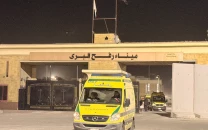
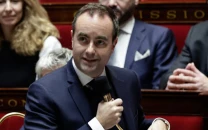
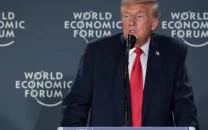
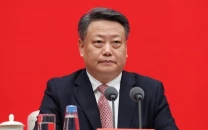
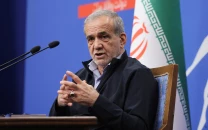
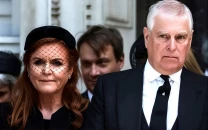












COMMENTS
Comments are moderated and generally will be posted if they are on-topic and not abusive.
For more information, please see our Comments FAQ